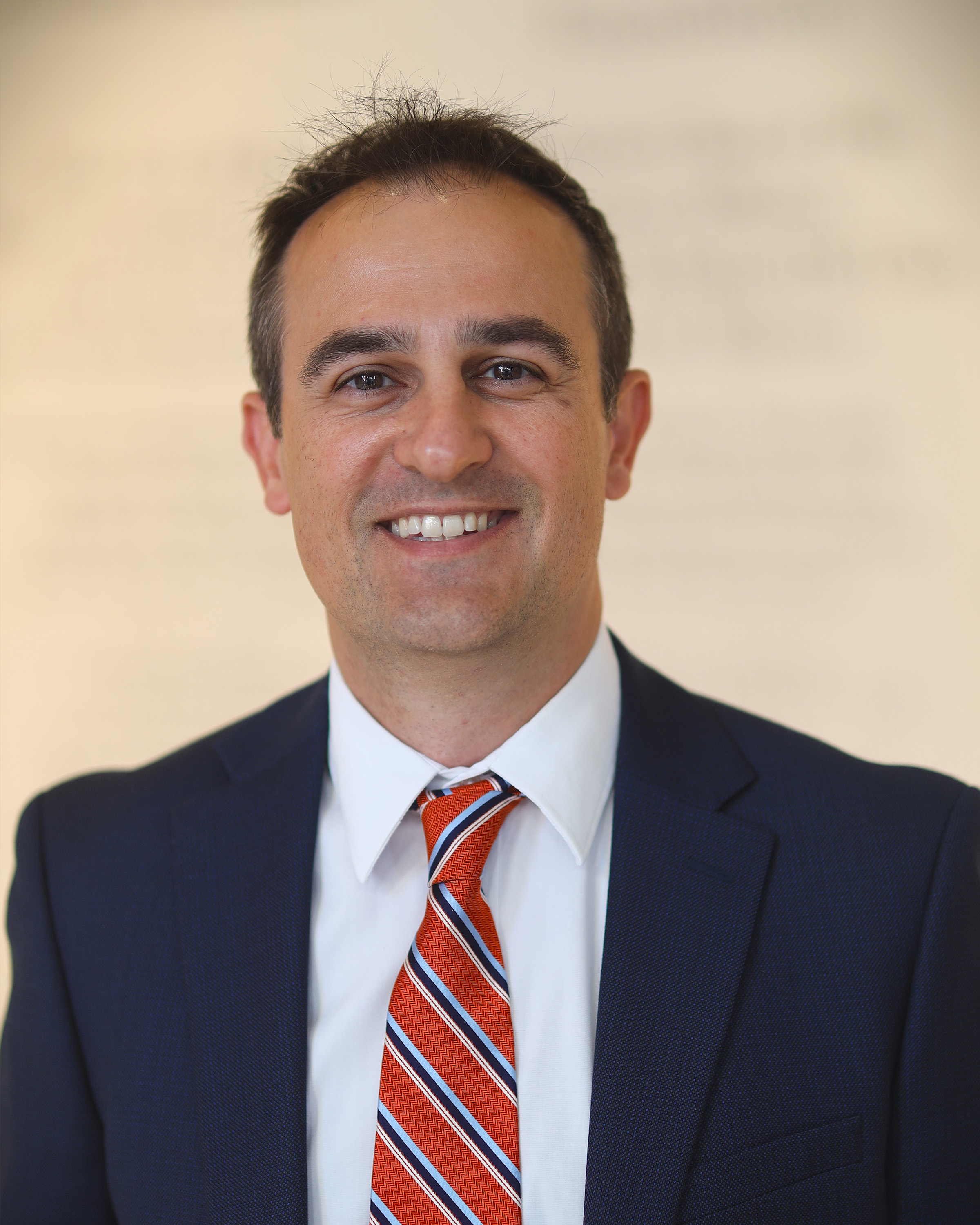Pete D. Meliagros, M.D.
Educational Innovation/Educational Research Award
Department: School of Medicine
In 2015, as a chief resident in Internal Medicine at VCU, Dr. Pete Meliagros recognized a crucial gap in resident training and saw a chance to make a real difference in the way residents learned essential procedures. He noticed that the traditional "see one, do one, teach one" method did not optimize patient safety. Dr. Meliagros, along with colleagues, began to implement a six-step pedagogical framework of “learn, see, practice, prove, do and maintain” for teaching and assessing procedural skills, laying the foundation for a complete overhaul of the procedural training curriculum at VCU. They developed simulation training sessions which remain the cornerstone of resident training to this day. Dr. Meliagros later completed a mastery-based learning course to further enhance the simulation sessions, which he subsequently expanded to include all procedures that Internal Medicine residents conduct at the bedside. As explained in his own words, “These mastery sessions allow residents to achieve a standard in their own time with deliberate formative feedback … My goal is to introduce simulated sessions before clinical procedures,” fostering a safe and controlled learning environment for skill development.
As a consummate innovator, when Dr. Meliagros identifies a need, he develops a solution. For example, he co-founded a procedure medicine team, offering residents an elective rotation opportunity for advanced training to further hone their skills. Additionally, he implemented a system of biannual resident evaluations designed to ensure that residents are meeting the highest standards
of procedural competency. Dr. Meliagros also collaborated with experts to develop standardized checklists for all procedures, ensuring consistency across the institution and minimizing the potential for errors. He spearheaded the development of a dedicated mobile application, which serves as a centralized platform for these checklists along with procedural videos, learning modules, and relevant literature, effectively functioning as a "one-stop shop" for all procedural information. He is currently developing a universal application to connect learners and standardize procedural training across institutions. Knowing the power of technology to enhance medical education, Dr. Meliagros became an early adopter of virtual reality (VR) as a teaching tool for medical procedures, providing residents with an immersive learning environment where they could practice invasive procedures, troubleshoot issues, and refine their technique without any risk to patients. These resources demonstrate Dr. Meliagros' deep understanding of the challenges faced by medical trainees. His investment in their success is readily apparent in their description of him as “one of the most approachable attendings,” who is a “patient, effective teacher … constantly available for support and coaching.”
Dr. Meliagros' dedication to medical education has not gone unnoticed: in 2022, residents selected him as the recipient of the Faculty Teaching Excellence Award, and in 2023, he achieved the designation of Fellow of Hospital Medicine. Additionally, Dr. Meliagros’ innovations have earned him national recognition as a leader in the field of procedural training, resulting in being an invited educator for the American College of Physicians Annual Meeting and an advisor to the ACGME on assessment and milestones for procedure competency. Dr. Brandon Fainstad, a professor at the University of Colorado, has worked closely with Dr. Meliagros over the past two years and can attest first-hand that one of Dr. Meliagros’ “most remarkable qualities” is his “willingness to take on the heavy lifting” and approach each task with “unwavering commitment and enthusiasm. His work is characterized by meticulous attention to detail and a drive for excellence that inspires everyone around him.” Dr. Meliagros’ innovative work not only transformed procedural training at VCU but continues to make waves on a national level, shaping the future of medical education. We are fortunate in the School of Medicine to call him one of our own.
